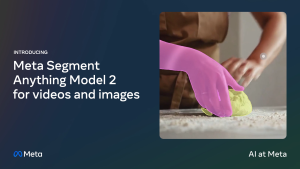MENLO PARK — In response to the surge in demand for live video content during the COVID-19 pandemic, Facebook AI has introduced a new feature that enhances accessibility: automatic closed captions for live videos on Facebook Live and Workplace Live. This development is particularly beneficial for the 466 million people worldwide who are deaf or hard of hearing, as it ensures they can access crucial information shared in real-time, including public health updates and government briefings.
Facebook AI’s automatic captioning, now available in six languages—English, Spanish, Portuguese, Italian, German, and French—leverages recent advancements in automated speech recognition (ASR). These improvements have enabled Facebook to provide more accurate and timely captions, even in challenging environments with background noise, varied accents, and spontaneous speech.
The underlying technology, powered by convolutional encoders and RNN Transducer models, allows for efficient processing of live video streams, ensuring that captions keep pace with the audio. This is especially important given the dramatic increase in live broadcasts during the pandemic, with the number of Facebook Live broadcasts from Pages doubling in June 2020 compared to the previous year.
Facebook’s ASR models are also adaptive, capable of learning and incorporating new words, such as “COVID,” into the captions as they emerge in public discourse. This adaptability is critical for ensuring that live captions remain relevant and accurate, particularly during rapidly evolving situations like a global pandemic.
“Improving accessibility through real-time captions is essential, especially during a public health crisis,” said Daniel McKinnon, Product Manager at Facebook. “Automatic closed captioning not only supports the deaf and hard of hearing community but also benefits anyone who might be watching videos in a sound-sensitive environment.”
Facebook’s commitment to inclusivity is evident in its continuous efforts to refine and expand this technology, making live video content more accessible to a global audience. As video communication continues to grow, especially in times of crisis, these advancements in AI-powered captioning are helping to ensure that no one is left out of the conversation.



















